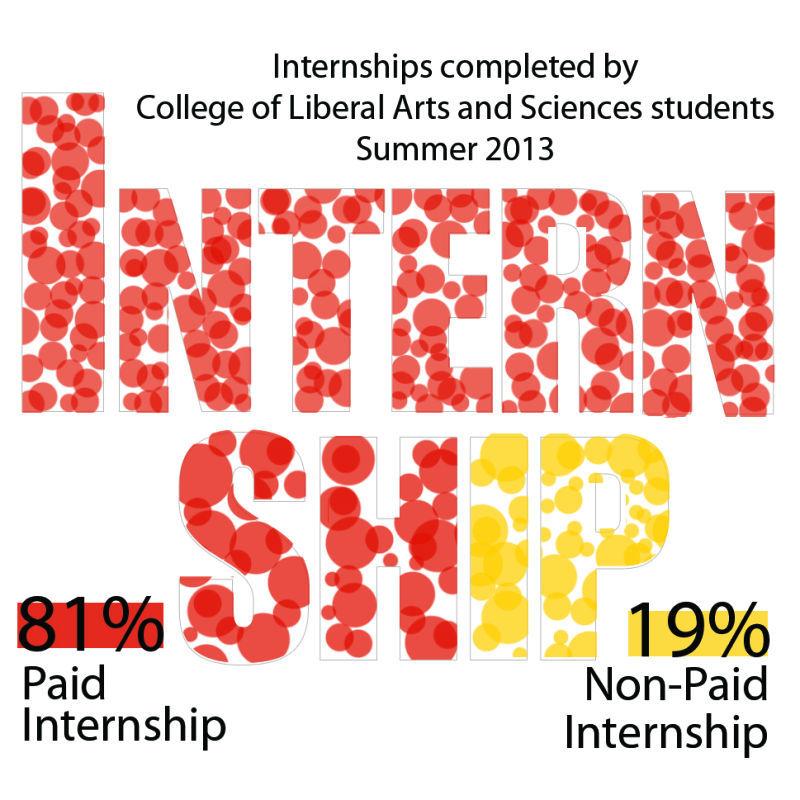Students seek paid internships
Infographic: Azwan Azhar/ Iowa State Daily
In the College of Liberal Arts and Sciences, 81 percent of the students from the school who did an internship last summer completed a paid internship while 19 percent completed a unpaid internship.
October 3, 2013
Every year, students send out applications to employers hoping to land an internship to meet graduation requirements or just gain experience. There are many factors students consider when choosing an internship. One of those can be whether or not it is paid.
There are many benefits to being paid during an internship, giving students reasons to seek those paid internships, said Kim McDonough, program and internship coordinator in the Greenlee School of Journalism and Communication.
“A lot of times, [students] have to pay transportation expenses and living expenses for completing an internship,” McDonough said. “So if an internship is paid, it helps them to defray the costs that go along with completing that internship experience.”
Students are more motivated to do well in their internships if they are paid because they treat the internship more like a job, McDonough said. But the benefits are not necessarily limited to the students applying for these internships. The employers could largely benefit from paying their interns.
“No. 1, the intern is going to be focused on completing that internship experience. The student isn’t going to have to look for another job,” McDonough said. “I think that the effort and the quality that they receive from their interns when they’re paid is a real advantage to them.”
Most students that see McDonough request a paid internship, but those are not always available.
Often, if a student wants a highly competitive internship, it might have to be completed on a unpaid basis. Some organizations do not offer paid internships.
“I know that there are a number of larger media outlets that simply don’t pay their interns over the summer,” McDonough said. “But the name recognition from the organization is sometimes enough to help the student get their foot in the door at a second organization or for entry-level employment.”
Internship coordinators at Iowa State strongly encourage employers to pay their interns.
One of these interns was Ashley Moyna, junior in culinary science who interned at National Cattlemen’s Beef Association.
“I was very thankful NCBA provided me with a paid internship opportunity,” Moyna said. “The cost of living in Denver is more expensive than the cost of living in Iowa, so it was nice to have some income coming in. I loved my job at NCBA, so being paid was just a bonus.”
Many students in the Greenlee School end up having multiple offers by the summer semester.
Students are encouraged to start applying for internships early.
“Typically, we recommend that our students begin looking for internship experiences about a year in advance,” McDonough said. “That’s not because they need to start applying a year in advance, but we want them doing research about the organizations where they truly want to complete their internship experiences.”
These students first start by applying with the organization. This leads to an interview if the organization or company is interested. After the interview is when the offers start to come.
“As long as the student is benefiting the organization in some way, I think they should be paid for their work,” Moyna said. “Some students can’t pursue internships because they can’t ‘afford’ work experience, which puts them at a disadvantage when it comes time to find a job, which seems unfair to me.”

















